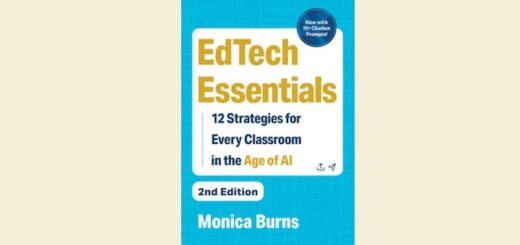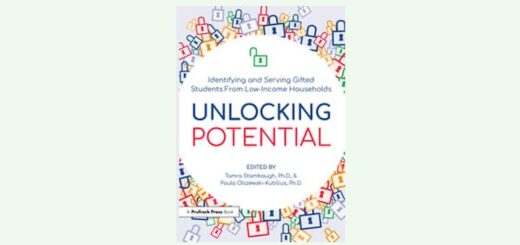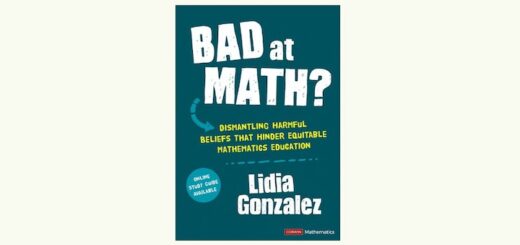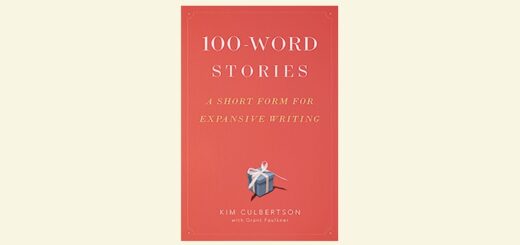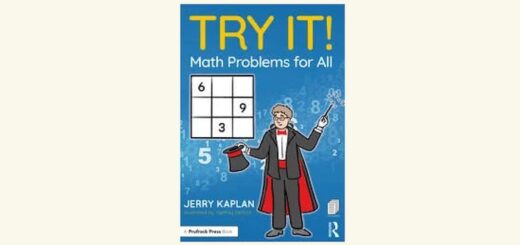Take Writing Workshop to a Higher Level
Above and Beyond the Writing Workshop
By Shelley Harwayne
(Stenhouse Publishers, 2021 – Learn more)
Reviewed by Helene Alalouf
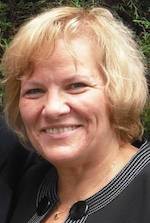
May I introduce you to a treasury you will enjoy exploring as Shelley Harwayne guides us in establishing a community of writers and finding audiences beyond the classroom!
As a middle school English teacher, I tried to engage my adolescent students in authentic writing tasks – and sometimes encountered resistance. For example, when my students were researching primary and secondary sources for the history (and solutions) to a current social problem of their choice, a local newspaper editor complained to the superintendent, “Why are Mrs. Alalouf’s students bothering my reporters with their questions?”
I thought it was a good idea to have a scavenger hunt of newspaper articles and direct their three investigation questions (what, why, how) to the relevant reporter as well as any cited politicians, including the President and then-NY governor – who did respond!
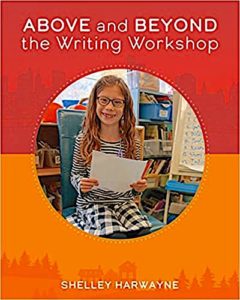
My thanks from higher up? I received a written reprimand to “stick to the grade level curriculum.”
Lest you think I am an education rebel, like the recovering traditionalist Christina at Build Math Minds, let me reassure you that was not my intent, but rather to employ the five standards of authentic instruction promoted by Newmann and Wehlage: Higher Order Thinking, Depth of Knowledge, Connectedness to the World Beyond the Classroom, Substantive Conversation, and Social Support for Student Achievement.
My passion for this approach led me to sample the entries in Above and Beyond the Writing Workshop. Grab a cup, pull up a chair and note pad, and let’s explore some of her most delicious ideas, adaptable to any grade and content area for your invited guest writers.
Writing Workshop Essentials
What are the essentials of the writing workshop?
1. Choice: Invite students to choose the topics and genres they are interested in, inspired by quality literature, and expected to be original and of quality writing.
2. Community and Collaboration: For quality writing, students need real audiences, access, and support. Moving beyond one’s desk to explore and “see the world as their classroom” promotes “searching, researching, interviewing, observing, documenting, visiting, sketching, photographing, and the like…[and sharing] serendipitous discoveries” (p.4). Students support each other by sharing information and processes (see “Camaraderie among Writers” in Part Two).
3. Challenges: The writing tasks are presented as “challenges,” as writing opportunities supported by suggestive texts, research, interviewing, viewing, and listening to TED talks. You will find specific titles in this resource’s chapters and appendices and in online access to book lists. You will also acquire scaffolds, guiding questions, timelines, conferencing tips, and sample works by the author and students.
As Natalie Goldberg stated with gusto in Writing Down the Bones,
“To write is to be empowered…As writers we live life twice, like a cow that eats its food once and then regurgitates it to chew and digest it again. We have a second chance at biting into our experience and examining it.”
Harwayne offers advice as we choose writing challenges for our students that may seem to be beyond our own knowledge or interest:
“We become better teachers when we are willing to step out of our comfort zones. In fact, probably the best way to be better at some aspect of teaching is to dive right in, living through the ‘practice makes perfect’ cliché…Teachers who worry that their own writing is not good enough to qualify them to be good mentors for their students must keep on writing, deliberately making efforts to strengthen their work.” (Ch. 23, p.275)
Here is a tasting from the menu to nourish your classroom of writers and inform your instruction.
Writing Challenges
Part One Chapter 1, Across the Globe: This writing opportunity reminded me of the topic of life and death, which fascinated my seventh graders so much they conducted family interviews as to how their religion or culture welcomed babies and buried the dead.
Chapter 2, Quirky Questions and Biographical Sketches: Students find people with something in common based on an organizing question such as “Is your face on the money?” or postage stamps of people with the last name “Armstrong.”
This reminded me of a big book project developed by a Westchester colleague, Susan Goldberg. After independently reading a biography of individual choice, with no duplicates of subjects, “Connecting Lives” students formed groups of biographical subjects with a commonality other than the obvious one of background or profession. One group of Leaders included a figure from science, social justice, and music. They composed individual multi-genre one-pagers and a collaboratively written theme page in a big book.
Part Two Chapter 6, Curiosity at the Core and Chapter 7, And the Award Goes to: Provide structures for generating questions and then presenting descriptive details acquired from responses to letters to experts who answered those questions – all based on students’ curiosity to know. This reminds me of a colleague’s web quest (remember those?) culminating in an argumentative essay of the Hall of Fame of Explorers and a Bio Board.
Part Three Chapter 9, Just for a Day, Chapter 11, Imagine If You Were…, and Chapter 12, Wearing a Mask all invite composing with personification and perspective. Choose to present a slice of daily life in a culture or career, or the life cycle of an animal or an era. Do you teach science? Select body organs, systems, or cells. In Social Studies, research a place or historical figure.
When my middle schoolers wrote dramatic monologues, my favorites were the Portrayal of a Penny and Lois Lowry explaining how her childhood influenced her writing The Giver. Chapter 14, Writing with Refrains reminded me of Poems for Two Voices, and disciplinary applications such as contrasting points of view: Tory vs. Patriot; Bohr vs. Heisenberg’s model of the atom; different solutions or answers to open-middle math problems.
And that covers only the first half of this writing diet compendium!
So in case you aren’t convinced yet, there is more! Are you wondering how to design writing prompts for your content? Curious about how ELs and MLs acquire writing proficiencies? Can writing journals be utilized in all content areas and for well-being? Trying to implement the mandated 5C’s of 21st Century Education to write for critical thinking, communication, collaboration, citizenship, and creativity? Harwayne has the help you need.
What if you suddenly need a lesson? As a middle school teacher I once stumbled upon the answer when a mischievous student broke a pencil in my classroom door lock, necessitating the class convening in the library with no access to the anthology and lesson materials for that day. Recalling an idea I picked up in a workshop, I asked the students to title their paper “My Life” resulting in the most poignant and personal sharing 20 minutes later.
You need not be in such an unplanned situation ever. Short-term projects with specific techniques and ample examples permeate Harwayne’s book Above and Beyond the Writing Workshop with acknowledgement to the challenges we are experiencing during and post COVID. This is a recipe book that should be on every teacher’s kitchen shelf. Or on the counter!
Since attaining her Masters from Teachers College, Columbia University, and later National Board Certification, education consultant Helene Alalouf relishes opportunities to share her passion and informed fluency of research-evident principles to ensure a productive learning environment, cognitively and affectively, to support educators and families in realizing their vision. At leisure, she enjoys walking and cooking with family and friends, reading, and knitting.

















